
We reviewed over 200 businesses worldwide*, and have identified over 165 businesses operating in the care economy across Latin America, Sub-Saharan Africa and Asia who met the following 4 criteria:
1. Geography focus: operating in project target countries.
2. Care economy impact: business activities recognize, reduce, reward or redistribute care work.
3. Proof of concept: care economy activities at least at the launch stage (none of the businesses are at concept stage).
4. Market-based intervention: already or planning to be financially profitable or to generate income in the medium term.
Out of the mapping we selected 60 businesses to conduct a full profile and showcase potential investment opportunities. These profiles have been created from information and data provided by the business itself. Use the filter on the left to access the businesses profiled.
* Disclaimer: The data presented in the business mapping and profiles is based on information provided by the businesses and has not been independently verified
1. Geography focus: operating in project target countries.
2. Care economy impact: business activities recognize, reduce, reward or redistribute care work.
3. Proof of concept: care economy activities at least at the launch stage (none of the businesses are at concept stage).
4. Market-based intervention: already or planning to be financially profitable or to generate income in the medium term.
Out of the mapping we selected 60 businesses to conduct a full profile and showcase potential investment opportunities. These profiles have been created from information and data provided by the business itself. Use the filter on the left to access the businesses profiled.
* Disclaimer: The data presented in the business mapping and profiles is based on information provided by the businesses and has not been independently verified
Filter Your Results
Asistta
Website: www.asistta.com
Headquarters: Colombia
Country of Operations: Colombia
Women owned / led: Founded by at least one woman, At least 51% owned by women, At least 30% women in senior leadership positions, At least 30% of women in board of directors
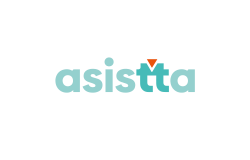
About the organization: Asistta is a Colombian platform that connects health professionals with users who require home services, medicine administration, physiotherapy, respiratory therapy, psychological services, nutrition, speech therapy, and nursing. Around 90% of its workforce are women. The Asistta platform is focused on supporting informal caregivers to enter the economy through an academic support network. In addition, it provides caregivers with the necessary training to enter the labor market by giving them the possibility of learning from home.
Stage of Growth: Small scale roll-out/Early stage
Types of Services: Infant-care (children younger than 1-year), Elderly-care (Ages 60 and above), Care for persons with special needs (disabled / differently abled persons), Care for people with illnesses
Activities in the care economy: Provision of technology & services that train/upskill domestic & care workers (e.g. technology that links employers to domestic/care workers), Provision of technology, services & policies/practice that improve condition for domestic & care worker (e.g. apps that calculate decent remuneration), Provision of affordable services that provide care & domestic work (e.g. affordable daycare services in rural areas)
Pathway to impact: Reward, Redistribute
Instituto de Promoción y Formación de Trabajadoras del Hogar IPROFOTH
Website: facebook.com/IprofothPeru
Headquarters: Peru
Country of Operations: Peru
Women owned / led: Founded by at least one woman, At least 51% owned by women, At least 30% women in senior leadership positions, At least 30% of women in board of directors
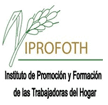
About the organization: IPROFOTH is a Peruvian organization made up and directed 100% by women domestic workers. They offer nursery services for caring for and stimulating children of care workers. The most vulnerable care and domestic workers, mostly migrant women, receive shelter services, training, job placement guidance, and labor rights protection. IPROFOTH’s main challenge is to raise awareness in the recognition and appreciation of the contribution made by women in the care economy. They seek to improve the quality of life of domestic workers, empowering them via good compensations, resilience strategies, and recognition of their contribution to the care economy. Iprofoth’s political action and articulation with civil society pushed the ratification of the International Labor Office’s Convention 189 and the approval of a new law for domestic workers in Peru.
Stage of Growth: Small scale roll-out/Early stage
Types of Services: Child-care (Ages 1 to 5), Child-care (Ages 6 and above), Domestic services
Activities in the care economy: Provision of technology & services that train/upskill domestic & care workers (e.g. technology that links employers to domestic/care workers), Provision of technology, services & policies/practice that improve condition for domestic & care worker (e.g. apps that calculate decent remuneration), Provision of affordable services that provide care & domestic work (e.g. affordable daycare services in rural areas), Awareness raising on the care economy through marketing, information campaigns & programmes that raise awareness & increase motivation
Pathway to impact: #N/A
Isla Urbana
Website: islaurbana.org
Headquarters: Mexico
Country of Operations: Mexico
Women owned / led: Information not available
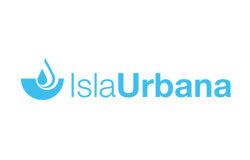
About the organization: Isla Urbana is a company that strives to make rainwater harvesting an autonomous, sustainable, and resilient alternative for the water supply of the most vulnerable. Its principal goal is to promote sustainable development in water based on rainwater harvesting. Isla Urbana’s main challenge is to create solutions to reduce the amount of time spent on care and domestic work. Its main motivation is that their country (Mexico) is going through a water crisis and millions of people lack dignified and safe access to this service.
Stage of Growth: Small scale roll-out/Early stage
Types of Services: Labour saving solutions
Activities in the care economy: Provision of technology, services & policies/practice that improve condition for domestic & care worker (e.g. apps that calculate decent remuneration), Provision of affordable time and labour saving technology and products (e.g. product that makes washing, cooking more efficient)
Pathway to impact: Reduce
Made To Clean Pvt Ltd
Website: www.madetoclean.co.zw
Headquarters: Zimbabwe
Country of Operations: Zimbabwe
Women owned / led: Founded by at least one woman, At least 51% owned by women, At least 30% women in senior leadership

About the organization: Made To Clean is a for-profit company that aims to standardize domestic work in Zimbabwe, by providing training and placements to domestic workers. Through its operations, it seeks to reward domestic workers for their work by increasing their skills.
Stage of Growth: Small scale roll-out/Early stage
Types of Services: Domestic services
Activities in the care economy: Provision of technology & services that train/upskill domestic & care workers
Pathway to impact: Reward
Prosperia
Website: es.prosperia.health
Headquarters: Mexico
Country of Operations: Mexico
Women owned / led: Founded by at least one woman, At least 51% owned by women
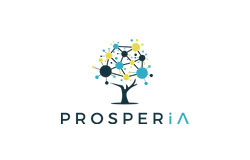
About the organization: PROSPERIA is a social impact spin-off from the MIT Media Lab created to massify early detection and treatment of chronic diseases in emerging markets through solutions based on Artificial Intelligence
Stage of Growth: Small scale roll-out/Early stage
Types of Services: Care for people with illnesses
Activities in the care economy: Provision of affordable services that provide care & domestic work (e.g. affordable daycare services in rural areas)
Pathway to impact: Redistribute
Strong Start
Website: www.strongstart.co.ke
Headquarters: Kenya
Country of Operations: Kenya
Women owned / led: Founded by at least one woman, At least 51% owned by women, At least 30% women in senior leadership positions, At least 30% of women in board of directors

About the organization: Strong Start is a for-profit company that provides caregivers and domestic staff in Kenya with technical skills training in early childhood development, household management, self advocacy and job search training. It connects with caregivers and domestic staff through community micropods and blended trainings to support them in advancing their technical and advocacy skills at their workplaces. The enterprise has trained 144 caregivers via live blended trainings and worked with 634 caregivers in micropod & playgroup programs. The company’s services not only reduce the burden of care work but also upskill caregivers and domestic workers.
Stage of Growth: Small scale roll-out/Early stage
Types of Services: Infant-care (children younger than 1-year), Child-care (Ages 1 to 5), Domestic services
Activities in the care economy: Provision of technology & services that train/upskill domestic & care workers
Pathway to impact: Recognize, Reward
TeleCuidado
Website: telecuidado
Headquarters: Chile
Country of Operations: Chile
Women owned / led: Founded by at least one woman, At least 51% owned by women
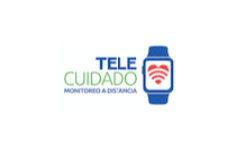
About the organization: Telecuidado is a telemonitoring system for the elderly. The innovative service consists of a wearable device connected 24×7 to a monitoring center, which receives the user’s vital signs, location, and signals from the patient. If an emergency is detected, the user, their family members, and health emergency professionals are immediately contacted if necessary.
Stage of Growth: Small scale roll-out/Early stage
Types of Services: Elderly-care (Ages 60 and above)
Activities in the care economy: Provision of affordable services that provide care & domestic work (e.g. affordable daycare services in rural areas)
Pathway to impact: Reduce, Redistribute
USAFI GREEN ENERGY LIMITED
Website: usafigreenenergy.co.ke
Headquarters: Kenya
Country of Operations: Kenya
Women owned / led: At least 51% owned by women
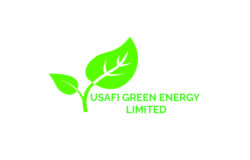
About the organization: Usafi Green Energy Limited is a for-profit company that manufactures and distributes cookstoves and biomass briquettes in Kenya. Usafi briquettes are of high carolific value and high heat content therefore make it more viable for household, industrial and institutional use as a fuel. It reduces care work by saving cost and energy. Through the use of the enterprise’s renewable energy products 3 out of 10 trees have been saved and over 4200 households are using the product.
Stage of Growth: Small scale roll-out/Early stage
Types of Services: Labour saving solutions
Activities in the care economy: Provision of affordable time and labour saving technology and products
Pathway to impact: Reduce
